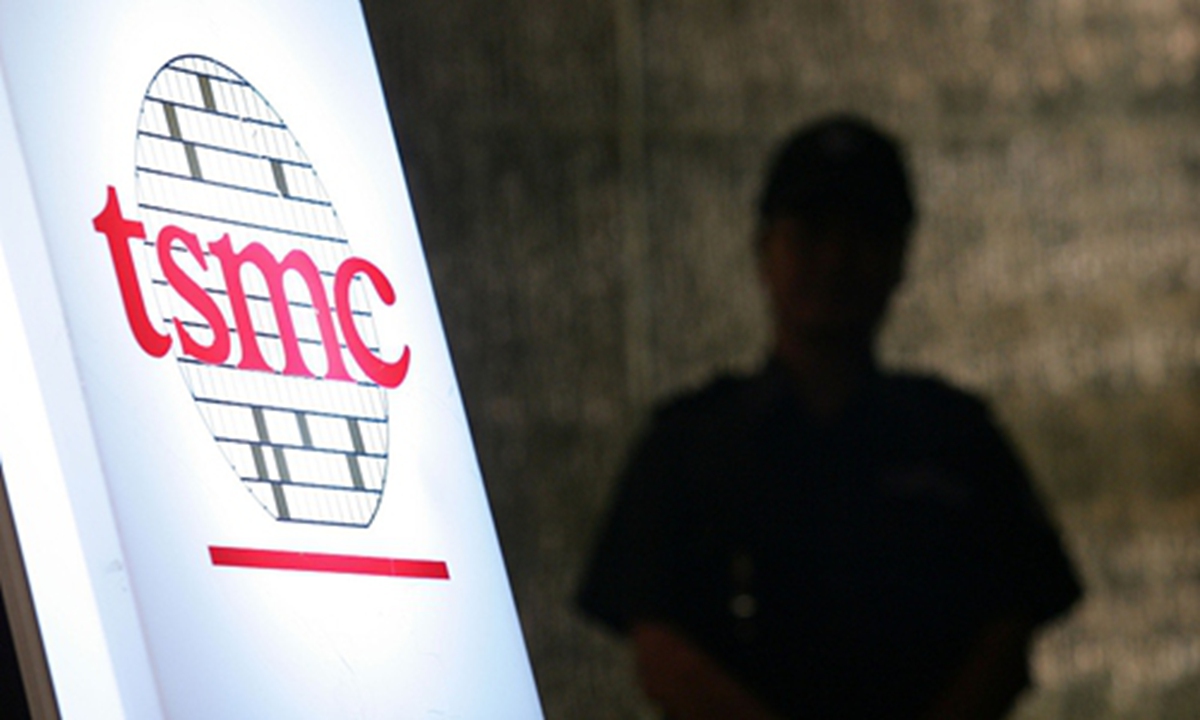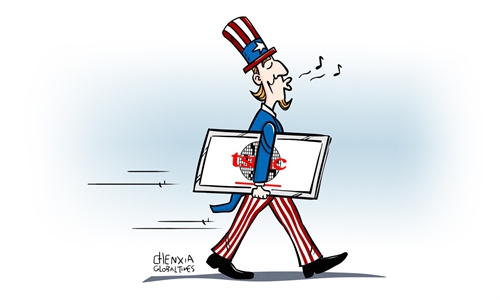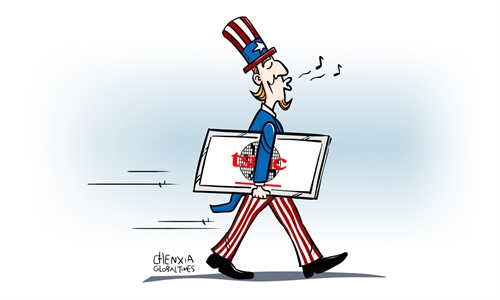
TSMC File photo
Taiwan Semiconductor Manufacturing Co (TSMC), the world's biggest contract chipmaker, is facing rising challenges, including problems with its application for US subsidies and plunging sales, as the company has been caught in the US' chip war against the Chinese mainland and the secessionist Democratic Progressive Party (DPP)'s collusion with Washington.
TSMC is pushing back on some of the conditions Washington has attached to chip-factory subsidies as it seeks up to $15 billion in US government money, the Wall Street Journal (WSJ) reported on Wednesday.
Specifically, the chipmaker, which announced plans to invest $40 billion in two chip plants in the US state of Arizona, is concerned about rules that could require it to share profits from the factories and provide detailed information about operations, the WSJ reported, citing people familiar with the situation.
Such rules are even threatening the feasibility of the two factories in Arizona, as the firm is concerned about the economics of the project with surging costs and potentially capped profits, according to the report.
Meanwhile, TSMC is also facing plunging sales and revenue. In the first quarter ended March, the company's net revenue contracted 16.1 percent to $16.72 billion compared with the previous quarter, and it fell by 4.8 percent year-on-year, according to data released by TSMC on Wednesday.
TSMC's woes are a reflection of the profound ramifications of the US protectionist chip policies and the DPP authorities' collusion with Washington at the expense of the firm and the broader semiconductor industry in the island of Taiwan.
The so-called chip alliance initiated by the US aims to exclude the Chinese mainland from the global semiconductor industry, and chipmakers from Taiwan island and South Korea would fall into the US' trap of "decoupling," if they chose to follow the US' order and apply for US subsidies, Dong Shaopeng, a senior research fellow at the Chongyang Institute for Financial Studies at Renmin University of China, told the Global Times on Thursday.
Even though chip firms may benefit from the US and its allies in aspects like technological sharing, they will however lose the trust of the Chinese mainland, the world's major market, Dong noted.
As concerns raised by TSMC showed, the US subsidies will not come free and chipmakers will face strict rules and have to share trade secrets as well as profits with the US, experts noted. As US Commerce Secretary Gina Raimondo put it, "we are not writing blank checks to any company that asks."
Beyond the ill motives behind the US attempt to lure global chipmakers through protectionist policies and political pressure on allies, the market conditions in the US are also too tough for global chipmakers to set up factories and produce there, experts pointed out.
The US has obvious weaknesses in the manufacturing industry, and can only rely on granting subsidies to attract foreign manufacturing enterprises to the US, Fu Liang, a veteran industry analyst, told the Global Times on Thursday.
However, relying on subsidies alone will not be sustainable, Fu said, adding that the US faces major difficulties for granting high subsidies to foreign firms due to its decision-making mechanism.
Such risks and challenges in the US market may have sounded the alarm for global chipmakers that are seeking to set up factories in the US. TSMC Chairman Mark Liu has said the US terms could dissuade chip makers from working with Washington to build US factories, and South Korean chip makers have also raised objections over the US terms, according to the WSJ report.


